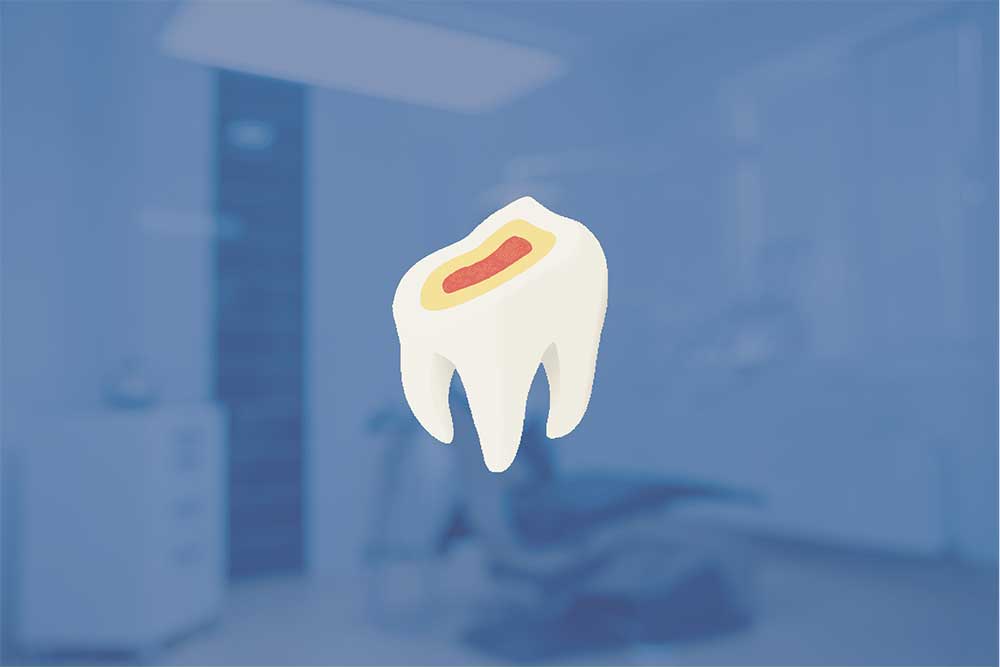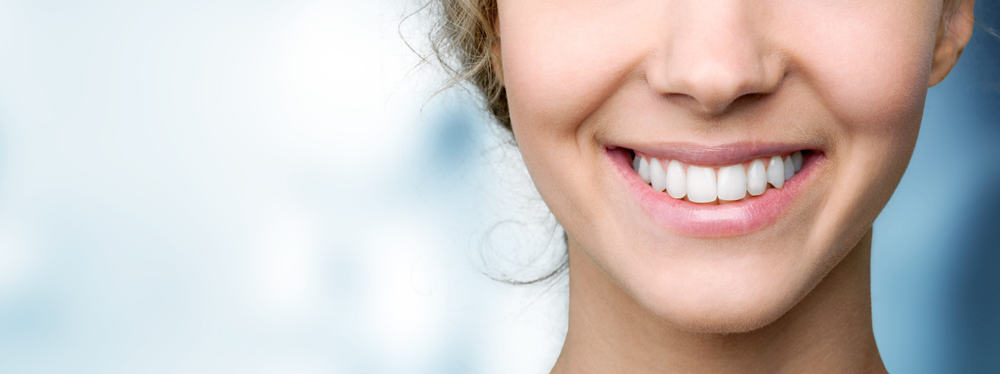What are teeth made of? (The four layers of tissue that make your teeth)

In this article we explain the 4 layers and how each layer plays a vital role in protecting and nourishing the tooth.
What are teeth made of?
Human teeth are made of four types of tissue: enamel, dentin, cementum, and pulp.
These soft and hard tissue layers contain important minerals such as calcium, phosphorus, magnesium and potassium. All of these nutrients play a vital role in forming and maintaining strong, healthy teeth that aren’t sensitive to pain.
Let’s look at each tooth layer in closer detail…
Enamel (hard tissue):
The outer enamel layer is actually the hardest material in your body, because it’s mostly mineral (95 per cent). Although enamel is even harder than bone, it’s surprisingly rather brittle too. Don’t fall into a false sense of security, as enamel can get damaged if you don’t look after your teeth. Healthy enamel stops harmful bacteria from entering our teeth and gums, so take good care of it.
Dentin (hard tissue):
If you’re wondering why natural teeth have a yellow tinge, you can blame the yellowish dentin layer that peeps through translucent enamel. Most of the tooth is made up of dentin, which sits beneath the enamel to provide extra support (especially while eating). Dentin is calcified tissue that’s tough like bone, but also has a degree of compliance to it (not stiff). It’s not as hard as enamel, and is more vulnerable to wear.
Pulp (soft tissue):
At the core of the tooth we have nourishing pulp — which contains nerves, blood vessels and connective tissue. If pulp becomes seriously damaged, that tooth will be cut off from vital nutrients and neural signals.
Cementum (hard tissue):
Cementum has the same hardness as bone, and it sheaths the root of the tooth. This is the layer to which the ligaments that hold the tooth in place in the jaw bone attach. The cementum is yellow, but not as dark as the dentin.
Over the span of a lifetime, humans have 20 deciduous (baby) teeth and 32 permanent teeth. These can be classified as incisors, canines, premolars, or molars. Each type of tooth serves its own important purpose, from tearing food to chewing it into smaller pieces.
Are teeth considered bones?
Teeth and bones seem very similar, but no, teeth are not bones. It’s an easy mistake to make because both are strong, white structures that store over 99 per cent of the calcium found in our bodies.
Key differences:
- Teeth are made out of enamel, dentin, cementum and pulp, but bones consist of living tissue and collagen that’s always breaking down and rejuvenating.
- Unlike with bones, there’s no living tissue or collagen in enamel, which is why enamel can eventually break down.
- There is marrow in bones, but not in teeth.
- Remember, enamel is actually harder than bone, but more susceptible to wear and tear. Bones can heal over time, but teeth cannot without medical intervention (this is true for most cases, but minor surface damage can actually heal through remineralisation).

How to protect teeth:
How to protect teeth:
It’s not possible for damaged teeth to regenerate, so you must do everything you can to prevent damage from occurring in the first place.
Take care of your dental hygiene:
Brush your teeth every morning and night, and floss daily (or at least every few days). Don’t rush the brushing process, you should take at least two minutes. The Australian Dental Association has this handy guide on proper brushing techniques.
Cut down on sugary foods and beverages:
We’re not suggesting that you eliminate sugar from your diet, but go easy on the sugar! Don’t over-indulge on sweet foods or drinks (such as soft drinks and fruit juices). If you do, a bacteria called Streptococcus could thrive in your mouth and cause decay – especially if you don’t clean your teeth properly.
Don’t smoke:
Harmful oral bacteria loves tobacco, as well as the dry environment that smoking creates. If you’re a smoker, consider quitting for good. Please contact Quitline for support and useful resources.
Nourish your body with good food:
Nourishing foods encourage the proliferation of good microbes that protect teeth against plaque and infection – while providing essential nutrients like Vitamin D and calcium. Increase your intake of foods such as fatty fish, yoghurt, pasteurised eggs, cheese, apples, sauerkraut, carrots and salad greens.
Stop grinding your teeth:
This can be a hard habit to break. You may not be aware that you’re doing it, if you grind your teeth while sleeping! Regular tooth grinding (called bruxism) can lead to sensitivity, pain, fractures, cracks and even tooth loss. It’s important to have regular check-ups, because your dentist will be able to tell if bruxism is a problem for you, just by looking at your teeth.
Stress and anxiety are significant contributors to bruxism – managing these will definitely help!
If you’re someone who grinds their teeth, bruxism is largely caused by anxiety, so it’s important to reduce stress in your life. Here’s a meditation you can try, specific to bruxism.
Don’t use your teeth as a tool:
You may be tempted to open a bottle with your mouth, or use your teeth to tear off tape, but please don’t! This is how many patients end up chipping or breaking their teeth as teeth are not substitutes for proper tools. Using your teeth in this manner will increase the wear and tear on them.
Regular appointments with your dentist:
It’s a good idea to visit your dentist at least once a year, for a thorough check-up and cleaning session. Your dentist will identify and treat any dental problems before the damage becomes worse. Early intervention often leads to a full recovery – depending on what the condition is.
Our friendly team is based in Wahroonga, and we’re committed to providing the best dental care. Fill out this form or call us on (02) 9489 1107 to book an appointment.
